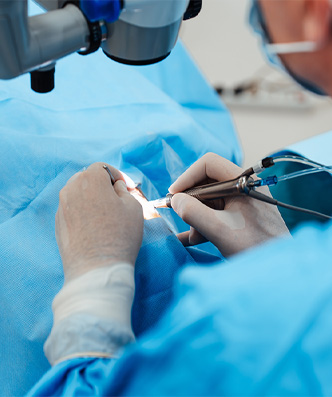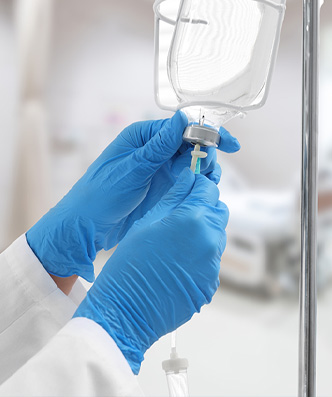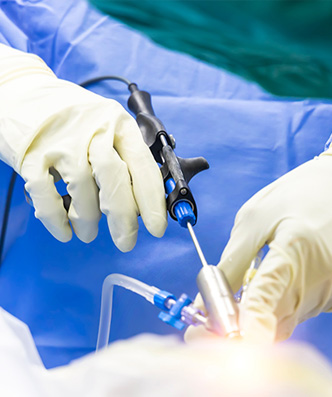Tailored & Effective
Care for Urological
Cancers
Kidney, Testicular & Penile Cancers

Specialised Experience



Care & Support
Urological cancers are serious but are treatable when detected early.
At TTW Urology, we are committed to providing detailed evaluation and comprehensive care to help you achieve optimal outcomes.

What Are Urological Cancers?
Urological cancers refer to cancers affecting the urinary system and, in men, the male reproductive organs. These include:
- Prostate Cancer: Cancer of the prostate gland, common in older men.
- Bladder Cancer: Cancer starting in the lining of the bladder.
- Kidney Cancer: Cancer that originates in the kidneys, often detected incidentally on imaging.
- Testicular Cancer: Cancer that develops in one or both testicles, often affecting younger men.
- Penile Cancer: A rare cancer developing in the skin or tissues of the penis.
With urological cancers, prompt and targeted management will improve treatment outcomes.
Symptoms Of Urological Cancers To Watch For
Recognising early signs can lead to faster diagnosis and treatment. Symptoms may include:
Prostate Cancer:
Difficulty urinating, weak urine flow, blood in urine or semen, pelvic discomfort.
Bladder Cancer:
Blood in urine (even without pain), frequent urination, painful urination.
Kidney Cancer:
Blood in urine, persistent back or side pain, unexplained weight loss, fatigue.
Testicular Cancer:
A painless lump or swelling in the testicle, feeling of heaviness in the scrotum.
Penile Cancer:
Changes in skin colour or thickness on the penis, a growth or sore that does not heal.
Early Detection & Intervention Goes A Long Way
If you recognise any of these signs, contact us at 6518 3622 for specialised medical care.
How We Diagnose Urological Cancers
Accurate diagnosis is key to planning the right treatment. At TTW Urology, we use a combination of methods tailored to the specific cancer type:
Symptom Assessment
We will discuss your symptoms, medical history, and any relevant risk factors such as smoking, family history, or prior urological conditions.
Physical Examination
A targeted physical exam helps us identify any visible or palpable abnormalities – such as testicular lumps or enlarged prostate – that may indicate cancer.
Urine and Blood Tests
Urine tests can detect blood, cancer cells, or signs of infection, while blood tests measure tumour markers (e.g., PSA for prostate cancer) and organ function indicators.
Imaging Scans
We may use ultrasound, CT scans, or MRI to locate tumours, assess their size and extent, and evaluate if the cancer has spread to nearby structures or lymph nodes.
Cystoscopy or Endoscopic Evaluation
For bladder or urethral cancers, we may recommend a cystoscopy—a procedure that allows us to examine the urinary tract lining using a thin, flexible scope.
Biopsy
If a suspicious mass is found, a biopsy may be performed to collect tissue for lab analysis. This confirms the diagnosis and provides information about the cancer’s grade and aggressiveness.
How We Treat Urological Cancers
At TTW Urology, treatment is tailored to each patient based on cancer type, stage, and overall health.
Treatment options may include:

Surgery
Surgery is often the primary treatment for many urological cancers, especially when the tumour is localised. Procedures include partial or radical removal of the affected organ to less invasive options.
These operations are usually performed under general anaesthesia and may be followed by a short hospital stay, depending on complexity.

Radiation Therapy
Radiation therapy uses high-energy beams to target and destroy cancer cells, and is commonly used in prostate and bladder cancer management.
This non-invasive treatment is often used as a primary option, especially in patients unfit for surgery, or as an adjunct to other therapies to minimise recurrence.

Systemic Therapies
Systemic treatments such as chemotherapy, hormone therapy, and immunotherapy may be used when cancer has spread or as part of a combined approach.
These therapies are typically administered in cycles and may be given orally or intravenously.

Minimally Invasive Techniques
Advancements in technology allow many urological cancers to be treated with minimally invasive methods like laparoscopic or robotic-assisted surgery.
Patients benefit from smaller incisions, less postoperative pain, and reduced hospitalisation time.
Please Reach Out for Personalised Advice
For more information and evaluation about urological cancers, please contact us at 6518 3622 to meet with our experienced urologist.

Our Urological Cancer Specialist
Dr Tan Teck Wei
MBBS (S’pore), DFD (CAW), MRCS (Edin),MMed (Surgery), FAMS (Urology)
Dr Tan Teck Wei is a Senior Consultant Urologist and former Director of Genitourinary Oncology at Tan Tock Seng Hospital. Skilled in the management of urological cancers, Dr Tan strives to provide empathetic and effective care with the patient’s best interests in mind. He is fellowship-trained in open, laparoscopic and robotic urologic surgery; and has held numerous leadership and academic positions. Dr Tan understands the distress faced by patients and their families, and is committed to providing care that is not only medically sound but also supportive, personalised, and attuned to each patient’s circumstances.
FAQs on Urological Cancers
Yes. Prostate cancer is one of the most common cancers in men, while bladder, testicular, and kidney cancers are also frequently diagnosed. Penile cancer is rarer but important to detect early for better outcomes.
Risk factors include age, family history of cancer, smoking, exposure to certain chemicals, chronic infections, and personal history of undescended testicles (for testicular cancer).
HPV infection is a risk factor for penile cancer, while a family history and certain genetic conditions can increase the risk for kidney cancer.
Many urological cancers are treatable and potentially curable, especially when detected early. Treatment success depends on the cancer type, stage at diagnosis, and overall health.
If you notice any concerning symptoms — such as blood in urine, difficulty urinating, a testicular lump, or penile sores — it is important to seek medical evaluation promptly. Early diagnosis leads to better treatment outcomes.
Not always. Some early-stage cancers can be managed with active surveillance, radiation, or minimally invasive treatments. The most appropriate approach will be discussed with you based on your individual situation.
For enquiries on your condition or appointment booking, please fill in the enquiry form and we will be in touch with you soon. Your health and well-being are our top priorities, and we look forward to assisting you on your medical journey.



